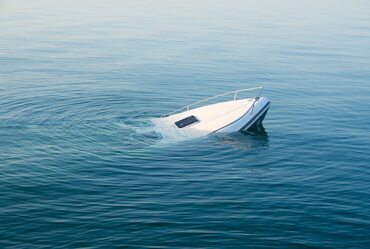Search

Boating is a popular recreational activity enjoyed by millions each year. Whether on lakes, rivers, or oceans, boating offers fun, relaxation, and adventure. However, with that freedom comes responsibility—and unfortunately, boating accidents happen far too often.
The U.S. Coast Guard reports thousands of boating accidents annually, many of which result in injuries, property damage, or even fatalities. Understanding the primary causes of these incidents can help you stay safe on the water.
Below are the top 10 causes of boating accidents, along with tips on how to avoid them.
One of the most common causes of boating accidents is simply not paying attention. Distracted operators may miss floating debris, changing weather conditions, or approaching vessels.
Prevention Tips:
Failing to keep a proper lookout—especially in crowded or narrow waterways—can lead to serious collisions. Every boat should have someone watching for hazards at all times.
Prevention Tips:
Inexperienced boaters may not know how to respond in emergencies or operate their vessels safely. This often results in collisions, capsizing, or grounding.
Prevention Tips:
Driving a boat at high speeds reduces your reaction time and increases the severity of any impact. Speeding is especially dangerous near marinas, docks, or in low visibility.
Prevention Tips:
Boating under the influence (BUI) is just as dangerous—and illegal—as driving drunk. Alcohol impairs judgment, slows reflexes, and increases the risk of drowning.
Prevention Tips:
Engine trouble, steering issues, or electrical failures can leave a boat stranded or cause sudden loss of control. Often, these issues are the result of poor maintenance.
Prevention Tips:
Sudden storms, fog, or high winds can turn a smooth trip into a dangerous situation. Poor weather is a leading cause of capsizing and sinking.
Prevention Tips:
Ignorance or disregard of navigational rules—like right-of-way, safe passing distances, or channel markers—can result in preventable collisions.
Prevention Tips:
Every vessel has a weight capacity. Exceeding it—either with too many passengers or too much gear—can make the boat unstable and prone to capsizing.
Prevention Tips:
Many accidents occur at dusk or during the night when visibility is limited. Without proper lighting, your boat becomes nearly invisible to others.
Prevention Tips:
Boating accidents are often preventable. By understanding the top causes and taking proactive safety measures, you can significantly reduce your risk on the water. Whether you’re a new boater or a seasoned captain, safe boating starts with awareness, preparation, and smart decision-making.
Remember, water safety is not just about protecting yourself—it’s about protecting everyone on board and around you.